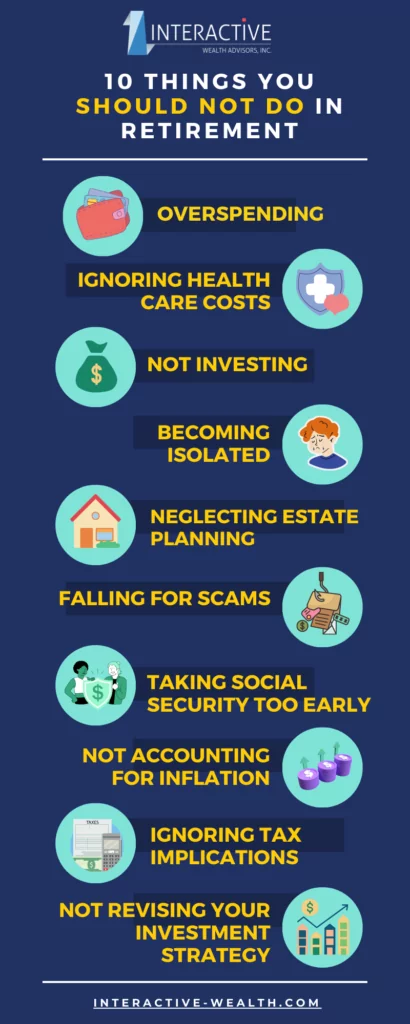In 2022, a startling statistic came to light: over 61% of recent retirees were considering rejoining the workforce. This figure is more than just a statistic; it’s a wake-up call, highlighting the growing challenges of retirement preparation.
As we step into 2024, you need a comprehensive and well-informed retirement strategy to secure your future. Given the rapid shifts in finance, influenced by new technologies and evolving economies, retirement planning goes beyond just saving money.
In this piece, we’ll explore the key retirement planning approaches for 2024, offering you valuable retirement planning tips to ensure a stable and fulfilling retirement.
Planning For Retirement in 2024
Medical advancements and healthier lifestyles have led to people living longer than ever before. With this increased life expectancy comes the challenge of making sure retirement savings last for an extended period. Entering 2024, the approach to retirement planning is adapting to accommodate these longer lifespans.
Are you considering your options for a comfortable and secure retirement? Whether you’re years away or nearing retirement age, it’s essential to have a detailed plan. Interactive Wealth is here to guide you every step of the way.
Challenges and Trends in Retirement Planning
One of the most significant challenges in retirement planning is the extended life expectancy. The joy of living longer also means that retirement funds need to last potentially 20-30 years or even more. This extended drawdown period can strain resources if not planned for adequately. Alongside this, with age, healthcare needs often increase.
Longer life can mean more medical expenses, and with healthcare costs on the rise, this is a significant factor to consider in retirement planning. Additionally, the financial markets are in a constant state of flux, influenced by global events, technological disruptions, and economic shifts. This volatility can impact retirement savings and investment returns.
Beyond Just Savings
Retirement planning in 2024 is not just about stashing away money. It involves a holistic approach that considers all income sources, potential future expenses, and even possible inheritance or legacy wishes. It’s also about lifestyle planning, thinking about what kind of life you want in retirement. Do you want to travel? Take up new hobbies? Relocate? All these decisions have financial implications.
In this evolving landscape, seeking the expertise of a retirement advisor can be invaluable. They can offer personalized advice, taking into account the current trends and challenges, ensuring that retirees can enjoy their golden years without financial stress.

Why Retirement Planning Matters
In a time when late adulthood can stretch across many decades, considerations for retirement become paramount. Recognizing the lasting significance of financial readiness is essential. Here’s why it matters more than ever:
1. Evolving Economic Landscape: The economic landscape is constantly in flux. As we enter 2024, we’ve witnessed unprecedented shifts in global markets, inflation rates, and interest rates. Retirees face the challenge of making their savings last in an environment where the purchasing power of their money may erode over time. Effective retirement planning helps safeguard against these financial uncertainties.
2. Longer Life Expectancy: Advances in healthcare and healthier lifestyles mean that retirees live longer. While this is a blessing, funding a more extended retirement poses the challenge. Without proper planning, you risk outliving your savings, potentially leading to financial strain in your later years.
3. Rising Healthcare Costs: Healthcare expenses tend to rise with age. In 2024, healthcare inflation is a genuine concern. Comprehensive retirement planning should include provisions for healthcare costs, ensuring you can access quality medical care without depleting your savings.
4. Social Security Uncertainty: The sustainability of social security systems is a topic of ongoing debate. Depending solely on government benefits may not be a viable strategy. Thoughtful retirement planning allows you to reduce your reliance on social security and take control of your financial future.
5. Legacy Planning: If leaving a legacy for your loved ones is essential to you, retirement planning becomes a tool for wealth preservation and inheritance strategies. It allows you to allocate assets efficiently and minimize tax liabilities.
6. Adapting to Change: Retirement isn’t a static phase of life. You may encounter unexpected challenges or opportunities along the way. A well-structured retirement plan provides the flexibility to adapt to changing circumstances without compromising your financial security.
The IRS has strict limits on how much you can contribute to your retirement account for the year. It’s likely you’ve exhausted your 401(k) and Roth IRA.
Navigating Retirement Risks and Pitfalls
Retirees often make common mistakes that can jeopardize their financial security. Avoiding these pitfalls can distinguish between a comfortable retirement and financial uncertainty. Here are a few examples with advice for retirees.
1. Overspending Early in Retirement: When you retire, you will probably spend less money on daily things like commuting or work clothes. But you might spend more on healthcare, hobbies, and trips. It’s easy to get excited and spend too much at first. Some folks don’t plan well or spend a lot on big things like vacations or fixing up the house. With money stuff always changing, it’s good to be careful. Spending too much or not watching your money can cause problems later on.
2. Failing to Diversify Investment Portfolio: Over-reliance on a single type of investment or failing to diversify your portfolio can be risky. Economic uncertainties can lead to market volatility, negatively impacting your investments. For example, retirees who concentrated their investments in the stock market incurred substantial losses, with as much as $3 trillion in collective losses in 2022.
3. Deviation from Retirement Plan: Some retirees may deviate from their well-thought-out retirement plan due to unexpected events or emotional decisions. For instance, withdrawing a large sum from retirement accounts to fund a child’s education or support a business venture can disrupt your financial security. Sticking to your retirement planning in Oregon with financial professionals will ensure you achieve the lifestyle you desire in retirement without unnecessary financial setbacks.

4. Over-Reliance on Social Security: While social security can provide valuable income during retirement, it shouldn’t be your sole source of financial support. The uncertainty surrounding the long-term sustainability of social security systems makes overreliance on these benefits risky.
5. Failing to Adapt to Changing Circumstances: Retirement isn’t a one-time decision; it’s an ongoing journey. Unexpected life events, economic shifts, and personal changes can impact your retirement plan. Failing to adapt can lead to financial stress.
6. Underestimating Longevity Risk: While increased life expectancy is remarkable, it also means your retirement savings must last longer. With people living well into their 80s and 90s, it can place a substantial financial burden on those who haven’t adequately prepared.
The 10 Retirement Mistakes to Avoid in 2024
As we navigate today’s complex financial landscape, it’s essential to recognize and avoid common retirement savings mistakes that can jeopardize your financial security and well-being in your post-work years.
1. Underestimating the Emotional Impact
Transitioning into retirement remains a significant lifestyle shift. The emotional aspect of retirement is often underestimated. It’s essential to prepare mentally and emotionally for the changes in daily routines, social interactions, and personal identity that retirement brings. Neglecting these implications can lead to a challenging adjustment period.
Understanding these changes and preparing for them is crucial. This could involve planning new routines, identifying hobbies or activities to pursue, or even seeking emotional support to navigate this transition. Ignoring these implications can lead to a challenging adjustment period, so facing them head-on is essential.
2. Failing to Keep Your Financial Plan Current
It may be a surprise that fewer than half of working-age Americans have any retirement savings, and even in the 55- to 64-year-old boomer age group, only 58% own retirement accounts. This statistic underscores the importance of staying vigilant with your financial plan, especially for the typical white-collar worker.
Regularly reviewing and adapting your financial plan to align with shifts in your life circumstances, market dynamics, and financial goals is now more crucial than ever. Without a current financial plan, you risk falling short of your retirement aspirations. The ever-evolving economic landscape requires flexibility and proactive adjustments to ensure a secure financial future.
3. Prematurely Tapping into Retirement Accounts
Withdrawing from common retirement plans like 401(k)s and IRAs before the stipulated retirement age can lead to severe penalties and a significant reduction in your retirement savings. If you neglect 401k planning, you’ll eventually realize that the total amount available for withdrawal falls far short of your intended goal.
Accessing retirement accounts prematurely erodes your nest egg and limits the potential for compound growth. Explore other financial options to address emergency financial needs before prematurely tapping into retirement accounts.
4. Accumulating Debt During Retirement
Retirement is meant to usher in financial freedom, not financial strain. Amassing unnecessary debt during this phase of life can place undue pressure on your finances and curtail your desired lifestyle. This may entail entering retirement with a substantial mortgage, accruing high-interest credit card debt, or resorting to loans for significant expenses.
Maintaining an emergency fund serves as a safeguard against unexpected financial outlays, reducing the reliance on debt. Keeping debt levels in check allows you to secure a more stable and stress-free retirement that matches your financial goals and aspirations.
5. Neglecting Diversification in Investments
Failing to diversify investments remains a significant risk. Recent market volatility has highlighted the importance of spreading investments across various asset classes. Concentrating investments in a single asset class or security exposes you to undue financial risk.
For Social Security planning help, you need advice from a team of professionals who know all the ins and outs of the system. We are a team of social security financial advisors who offer personalized service and guidance so that you can make informed decisions about your future.
Diversification helps manage risk and preserve retirement savings, especially in uncertain economic times. Diversifying your income streams, such as annuities, rental properties, or part-time work, can provide stability and security during turbulent times. Review your investment portfolio regularly to ensure it aligns with your risk tolerance and long-term goals.
6. Overlooking Estate Planning
Some retirees postpone or neglect estate planning, assuming it’s only relevant for the wealthy. Surprisingly, many Americans still lack essential estate planning documents such as wills or powers of attorney.
Proper estate planning ensures your assets are distributed according to your wishes, minimizes taxes, and provides financial security for your loved ones. Neglecting this aspect can lead to family disputes and legal complications.
7. Leading a Sedentary Lifestyle
The importance of physical activity and social engagement in retirement is more apparent than ever. Sedentary lifestyles have been linked to various health issues, including obesity, heart disease, and depression.
Staying active and socially connected can enhance your physical health and overall well-being in retirement. Incorporate regular exercise and engage in community activities to enjoy a fulfilling retirement.
8. Avoiding New Experiences
Retirement offers many opportunities to explore new hobbies, learn new skills, travel, and meet new people. However, some retirees may still hesitate to embrace these experiences due to fear or uncertainty.
Trying new things can enrich your retirement years, stimulate your mind, and boost your happiness. Don’t let fear hold you back from making the most of this exciting phase of life.
9. Depleting Savings Too Quickly
Retirement savings should last throughout your retirement years. Rapidly depleting these savings can leave you financially exposed in your later years. To safeguard your financial well-being, it’s essential to implement a strategic spending plan.
This might include creating a budget, closely tracking expenditures, adapting withdrawal rates to market fluctuations, and exploring potential income sources such as part-time employment or annuities. Through prudent management of your savings, you can establish a consistent income stream that sustains you throughout your retirement.
10. Neglecting Health
Health is wealth in retirement, especially in a world where healthcare costs continue to rise. Regular check-ups, a balanced diet, exercise, and preventive care are essential for maintaining your health and managing healthcare expenses.
Neglecting health can lead to serious health issues and high medical costs, potentially depleting retirement savings. Prioritizing your health allows you to enjoy an active, secure, and fulfilling retirement.
Wrapping Up
As we approach 2024, the need for robust retirement planning becomes increasingly evident due to economic shifts, longer life expectancies, rising healthcare costs, and social security uncertainties. To navigate this complex landscape, it’s vital to avoid common retirement mistakes and embrace new experiences for a fulfilling retirement.
At Interactive Wealth Advisor, we offer tailored retirement strategies, considering financial, emotional, and lifestyle aspects. We are a fee-only financial planner in Oregon who can assist you in creating a personalized and robust retirement strategy. With our extensive expertise and credentials, we understand the nuances of modern retirement planning. Don’t leave your golden years to chance; take action now and secure your retirement dreams with our guidance. Your future deserves nothing less.

We can also serve as your fiduciary planner, prioritizing your interests and goals and ensuring tailored wealth management strategies for suitable investments during retirement.


